While other areas of Syria have descended into ruin, the Kurdish-majority provinces of the northeast have been relatively calm. This owes to the governmental ascendancy of the Kurdish Workers’ Party (PKK), which is administering the so-called “Rojava Cantons” within a framework of democratic confederalism. The Rojava Cantons include three provinces, Erfin, Cizire, and Kobane, with the latter being a major battleground in the current war against Islamic State. International observers have been impressed with the results of the social experiment, which could very well provide an alternative governing framework for the entire region.
The PKK itself has evolved significantly since the late 1990s, and even more so during the Syrian civil war. While it was a top-down Leninist organization during the Cold War, since 1999, it has shifted towards a model of self-management and direct democracy that seeks to transcend national borders (particularly the one between Turkish and Syrian Kurdistan.) It was this ideological retooling that resulted in the eventual adoption of “democratic confederalism,” which broke from Leninist centralization in favour of structural horizontalism that is quite similar to Murray Bookchin‘s ideas of libertarian municipalism. Although it was conceived as existing parallel to the Turkish state, after severe crackdowns, the model was driven underground until it could manifest itself again in Syria, after Assad withdrew military units from Syrian Kurdistan to deal with rebel gains on Damascus and Aleppo. As a result, Rojava operates within its legacy, and boasts serious efforts at gender equality, participatory democracy, local autonomy, religious tolerance, and ecological socialism. The latter point is perhaps most important in an era of climate change, since democratic confederalism emphasizes that natural resource extraction can only be developed within the confines of overall sustainability.
The model has frequently been compared to the radical democratic outlook of the Zapatista Army of National Liberation, which is interesting given that both groups have declared an uneasy peace in order to more fully implement their platforms. The EZLN did so with Mexico City after the failure of their 1994 uprising to establish absolute autonomy, and the PKK began to follow suit in 2006, with a declared ceasefire that didn’t take hold until early 2013. This allowed the PKK to concentrate more on affiliated Kurdish democratic efforts in northeastern Syria as administered by the Democratic Union Party (PYD), and the US-sponsored Kurdish Autonomous Region (KAR) of northern Iraq. Both administrative bodies are now asserting themselves more strongly given the apparent collapse of the two countries. However, their differing models of development, and governance, have meant that the effects will ultimately be different.
The KAR is currently run by the conservative nationalist Kurdistan Democratic Party, as well as the Patriotic Union of Kurdistan. These groups support a relatively conventional and market-driven approach to independence, which has exploited Baghdad’s weakness to push a long-term objective of a neoliberal Kurdish nation-state in northern Iraq. This could very well mean eventual conflict with groups like the PYD, which by November 2013, announced that it had finished preparations for declaring autonomy in the three provinces under its control. That same month, the Cantons adopted the Charter of Social Contract. By January, the Cantons followed through with their plans and formally declared autonomy.

The Charter is a fascinating document which borrows intelligently from the Western liberal tradition, while anchoring itself in local realities. Its very name borrows from Rousseau’s ideas of consensual agreement being the basis for democratic governance, and makes these principles clear in its preamble, when it says that “the Charter proclaims a new social contract, based upon mutual and peaceful coexistence and understanding between all strands of society.” Critically, the administration functions more by popular consent than a traditionally-defined monopoly of state violence, although the latter was obviously necessary to build a platform for these objectives. This was especially true when it came to laying claims on rich natural resource deposits such as water. It is also a multicultural document, stating from the outset that the three Cantons are “a confederation of Kurds, Arabs, Assyrians, Chaldeans, Arameans, Turkmen, Armenians, and Chechens.” Furthermore, the Charter does not seek to undermine Syria itself, recognizing its “territorial integrity” and envisioning “a social contract that reconciles the rich mosaic of Syria through a transitional phrase from dictatorship, civil war and destruction, to a new democratic society where civic life and social justice are preserved.”
Lofty aspirations, indeed, but entirely appropriate given the region’s fierce, religion-driven sectarianism. We see a separation of powers in Article 4 that recalls the tripartite system of Montesqieu, but the Charter goes even further to establish a High Commission of Elections, as well as Municipal and Provincial Councils. Article 8 emphasizes that the individual Cantons “are founded upon the principle of local self-government” and can essentially do what they want as long as they do not contravene the Charter. Rousseau would have been pleased. Article 12 also seeks to emphasize that Rojava shouldn’t be seen as a state-within-a-state, and envisions the Cantons’ social contract as “an integral part of Syria” that forms “a model for a future decentralized system of federal governance” in the country. That remains to be seen, but it could certainly do worse than a document that guarantees ethnic, cultural, linguistic, and gender freedom (Article 23a), ecological sustainability (Article 23b), full rights and liberties for women (Article 27), and freedom of worship (Article 31) with special protections for Yezidis under Article 32c. The latter is part of an elaborate right to freedom of assembly that also protects the right to join trade unions, as well as the “political, economic and cultural expression of all communities” (Article 32b).
The phrasing of Article 32b is important, because it illustrates that the Charter envisions these freedoms on a community level, rather than strictly through liberal individualism. This greatly contrasts it with Western constitutions, like that of the United States. This does not mean it overlooks the individual: after all, it explicitly protects “the right to the use and enjoyment of private property” under Article 41. Rather, it understands individual freedoms with an eye towards collective well-being, which is why it also stipulates that “all governing bodies” are to be made up of “at least 40% of either sex” in Article 87. The liberal tradition has always aspired to achieve a middle-ground between individual freedoms and collective needs, but the reality has been that it has consistently faltered when it comes to discussions of racial and gender hegemony, as well as economic inequality. The Charter of Social Contract seeks to substantively tackle many of those problems by taking the liberal ideas that make sense, and using them as part of a fundamentally new approach. Even if the Charter itself is forgotten, this impulse will be extremely influential in the history of the region.
It is important to remember that Kurdish radical autonomy is not the only new approach that is gaining influence in the Middle East at the moment. Intense rhetoric about Islamic State, as well as genuinely horrifying stories about its excesses, frequently blinds regional observers to the fact that it also presenting a new vision of governance that is based on religious fundamentalism. There is a clash of ideologies occurring in the region at the moment, brought on by contrasting visions of future that have been made necessary by the failure of conventional politics to substantively deliver on a popular yearning for social change. These are not necessarily progressive ideologies, as demonstrated most infamously by a growth in jihadist violence, as well as the massive gains of militant movements like the Houthis in Yemen. However, they are not inevitably tribal in a reactionary sense, or jihadist, or backed by military strongmen, either. The Rojava Cantons are evidence that regressive violence is not an inevitable result of state failure. All state failure means is that a window is opened to radical possibilities, and it is dynamics on the ground that determine which ones are ultimately realized. Iraq and Syria are going to be unstable for quite some time as a result of ongoing warfare in the Levant. The Charter of Social Contract is proof that this could very well end with them once again being the cradle of something very different.
Photographs courtesy of Sozialfotografie. Published under a Creative Commons License.
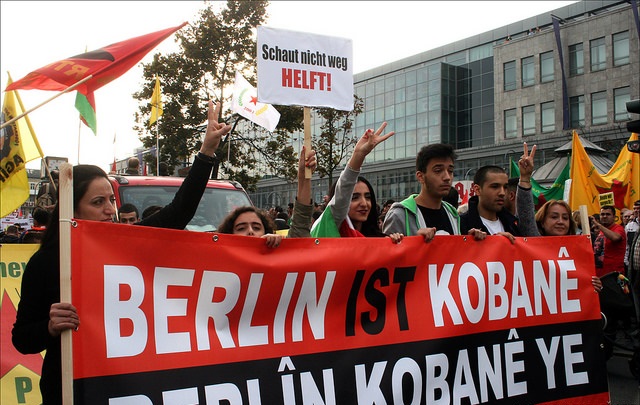
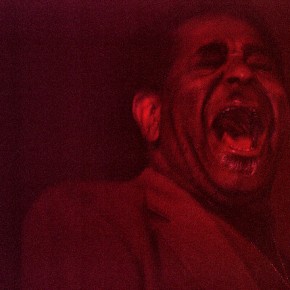
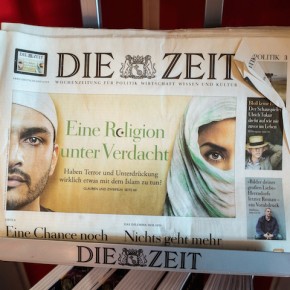

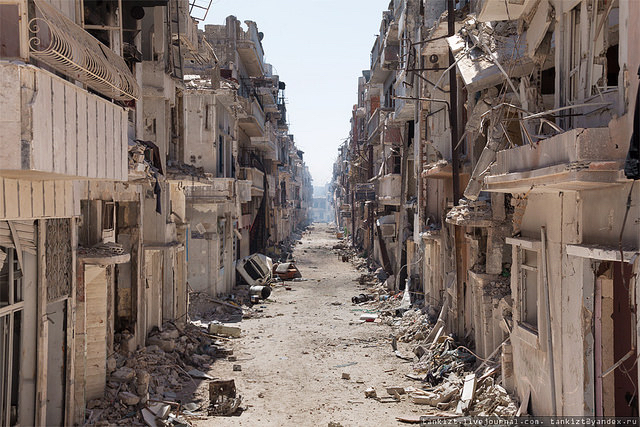
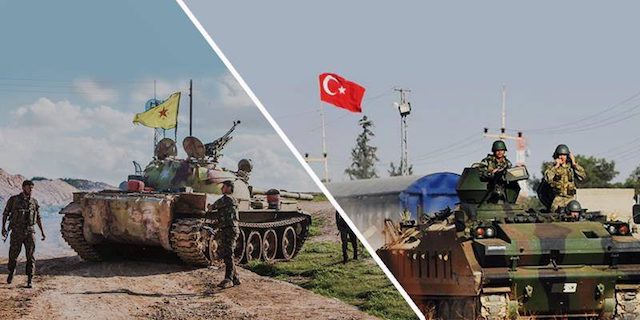
1 comment